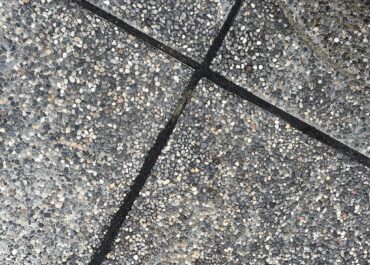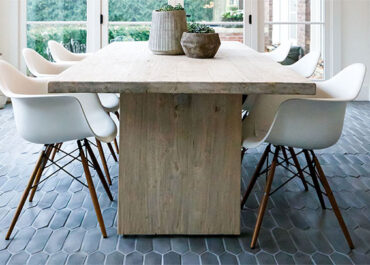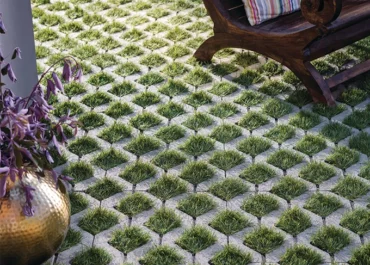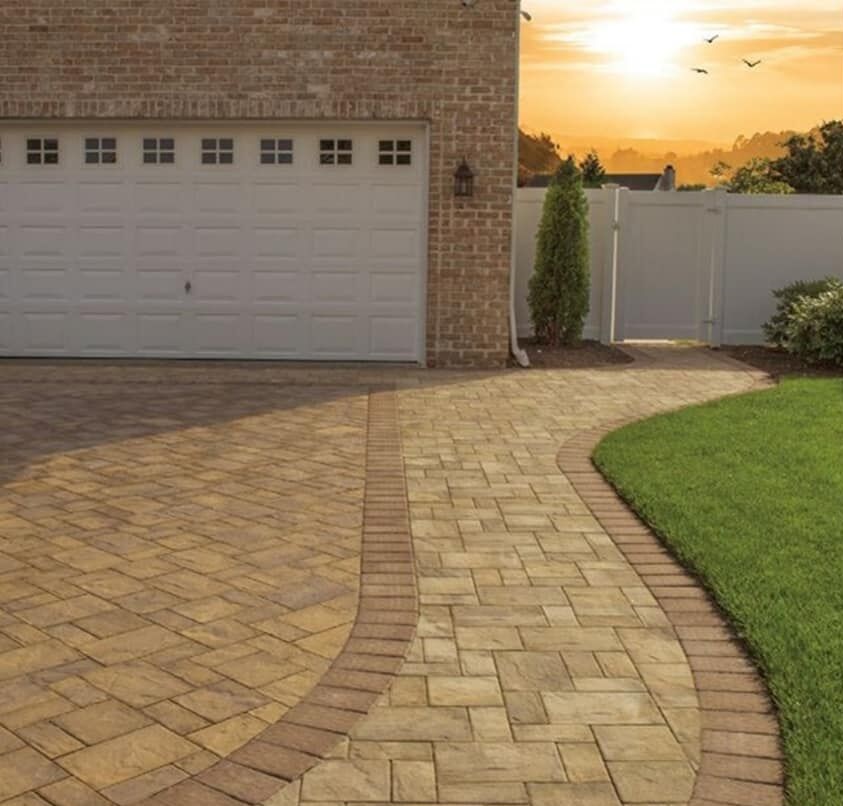
Even after being used for centuries, concrete pavers remain the kings of hardscape. And the title is well-earned, as few materials can beat its resistance and aesthetic appeal. And with recent technologies, they have become even better. But do concrete pavers get hot?
That might be an important question if you’re thinking about using concrete pavers as a base for a poolside paver installation. So let’s talk about that, as well as give you some tips in regard to concrete pavers’ maintenance.
Will Concrete Pavers Get Hot?
All pavers get hot, there’s no way around it. Some, however, can get unbearably hot.
That’s not the case for concrete. Sure, it will get warm to the point of slight discomfort on very sunny days, but they are one of the coolest materials you can use.
The color you chose can influence how hot your pavers can get. The darkest natural stones, for example, can get extremely hot, and caution is required when walking around them on hot days.
So, as long as you go for a more light colored concrete paver, your feet will be protected.
If cool pavers are a priority in your installation, something we recommend for a poolside installation, then maybe your best friends in this case will be travertine pavers.
Of all the materials, travertine is the coolest one, around 25% cooler than any other material. It is a beautiful natural stone with high functionality and tremendous visual appeal. We highly recommend the use of travertine for poolside installations.
Another excellent option, so good that it even rivals concrete when it comes to cost-effectiveness, are porcelain pavers.
In fact, porcelain pavers are one of the best materials you can go for due to their non-porous nature and natural UV resistance.
Preventing Pavers From Getting Hot
Aside from spraying them with water, there’s not a lot you can do about preventing your pavers from getting hot.
You can either spray them with a garden hose, install a misting system, or simply throw a bucket of water into them. But that’s more fixing a problem than preventing it.
If you do find out that your pavers get unbearable to walk on during very hot days, an alternative is to protect them with a coat or sealer specifically designed to prevent heat. There are many options available in the market, like the Rain Guard Cool Coat™ Acrylic Thermal Defense Sealer, one of the most popular options.
Paver Maintenance
Since we mentioned concrete, travertine and porcelain, those are the ones we are going to discuss.
There’s not much mystery around it. The easiness with which you can care for your pavers is one of the biggest selling point of the material.
As long as you sweep it regularly, to keep it away from biological debris that can stain the surface, like leaves, you’re good to go.
Once every month or two, you can perform a deep cleaning using a pH-neutral cleaning product. In the case of travertine, you can even use a cleaning product designed specifically for natural stone.
Both with concrete and travertine, sealing is mandatory to ensure your pavers last longer.
The right sealer can not only protect against the heat, as we previously mentioned, but also keep the paver non-slippery, something extremely important for a poolside installation.
Sealing your pavers also protects them against spills and weather, as well as help with weed control. It really is an important step that should never be skipped.
When exposed to the sun on a daily basis, sealers will last for about a year, so keep in mind that sealing is something you should do every year, preferably after a thorough pressure wash cleaning process.
As porcelain, due to its non-porosity, sealing is not necessary. Most professionals in the industry agree that the upfront cost of porcelain, which is not even that high compared to other options, more than pays for itself in the long run, since it will be compensated by huge savings in maintenance.
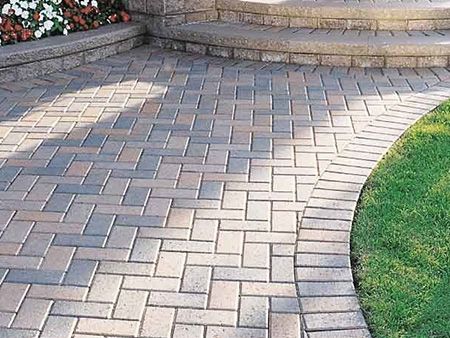
Paver Installation and Maintenance
So, concrete pavers don’t get nearly as hot as other options could. But the coolest paver out there is travertine, followed closely by porcelain.
By themselves, pavers will rarely give you any trouble.
They are extremely resistant structures that, when working together as an interlocked system, can withstand even the heaviest weights without breaking a sweat.
As fun as it can be as a DIY project, however, the installation of pavers is serious business. When not properly installed, pavers can give you huge headaches and all their benefits can go down the drain.
If you want the best possible outcome for your paver installation, your best course of action is to hire qualified professionals to help you.
Hardscape professionals can help you choose between concrete, travertine and porcelain. They can also guide you through the installation process and following maintenance.
We here at Eagle Pavers have helped countless homeowners with their paver installation during our 12 years of activity. We know the importance of dedication and planning, so we highly recommend you search for a professional in your area.
And if you happen to be around our area of activity, the Sarasota and Manatee counties, in FL, why not give us a call to help you?
You can contact us right now at +1 941-210-4192 or email us at sales@eaglepavers.us. We would be happy to hear from you and help you with your porcelain paver project.


